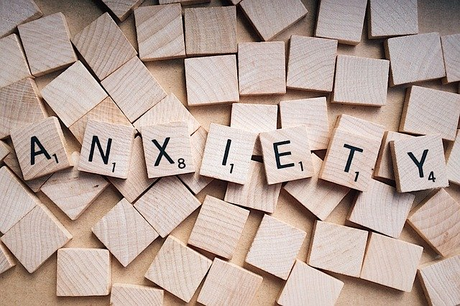Worrying about your health and well-being is, to an extent, par for the course; something that all humans do from time-to-time. However, for some people, these standard everyday worries can quickly take on a life on their own, resulting in the development of a condition known as health anxiety.

Overview
Health anxiety is, as one would expect, an anxiety disorder. The condition is usually seen as a subset of Obsessive Compulsive Disorder (OCD), as the patterns of behavior people with OCD engage in – triggers, compulsions, and seeking reassurance – are usually present in health anxiety.
People with health anxiety worry excessively about their health, often to the point of irrationally believing they (or their loved ones) are unwell. People with the condition are usually well-aware that their concerns are irrational or not factually based, but feel afraid of them anyway – a juxtaposition that can be very distressing.
The two different types of health anxiety
Most people with health anxiety fall into one of two groups: “avoiders” or “reassurance seekers”.
Avoiders will usually avoid all forms of medical intervention. They avoid seeing doctors when they are sick; will always decline important preventive or screening options such as an eye test, hearing test, or any other form of regular check-up; do not use medication, and limit their exposure to medical information (for example, turning the television off if a medical condition is being discussed).
Reassurance seekers are the opposite; they seek reassurance from medical professionals, often opting for as many tests as possible, and often visiting their doctor more than is necessary.
Both “avoiders” and “reassurance seekers” experience high levels of anxiety and worry about their health, and can experience unfortunate consequences as a result of their condition. For example, “avoiders” can avoid treatment for manageable conditions or identifying early signs of health problems, while “reassurance seekers” can be over-tested, often resulting in financial issues as a result.
Treatments for health anxiety
Cognitive behavioral therapy (CBT) is the most standard form of treatment for health anxiety. Medication can also be used, often in conjunction with therapy, if a doctor believes this would be beneficial.
However, many “avoiders” find accessing treatment very difficult as a direct result of their condition. In these cases, telemedicine or online therapy can often be less stressful alternatives to conventional care.
The “attention seeking” stigma of health anxiety
In popular culture, people with health anxiety are often dismissed as eccentrics; hypochondriacs who are simply seeking attention by way of their health concerns. Unfortunately, this stigma can cause many people with the condition to feel they have to hide their symptoms, which in turn can worsen their anxiety as seeking assistance becomes almost impossible.
People with health anxiety fear being unwell; they are not seeking a diagnosis or simply wanting attention. Thankfully, medical professionals who are familiar with health anxiety understand this, and will be highly compassionate and sympathetic to anyone who raises concerns over the way they think about their health.
In conclusion
Health anxiety is a little-known, but potentially very upsetting, mental health condition. If you experience excessive concern or anxiety about your health, then speaking to a medical professional for further assistance can be the first step towards finding a solution.
Thank you for reading!


